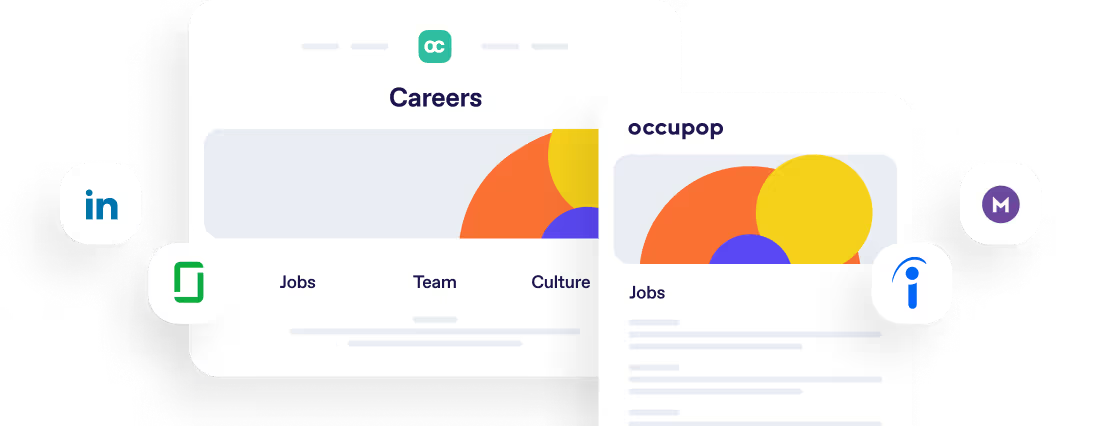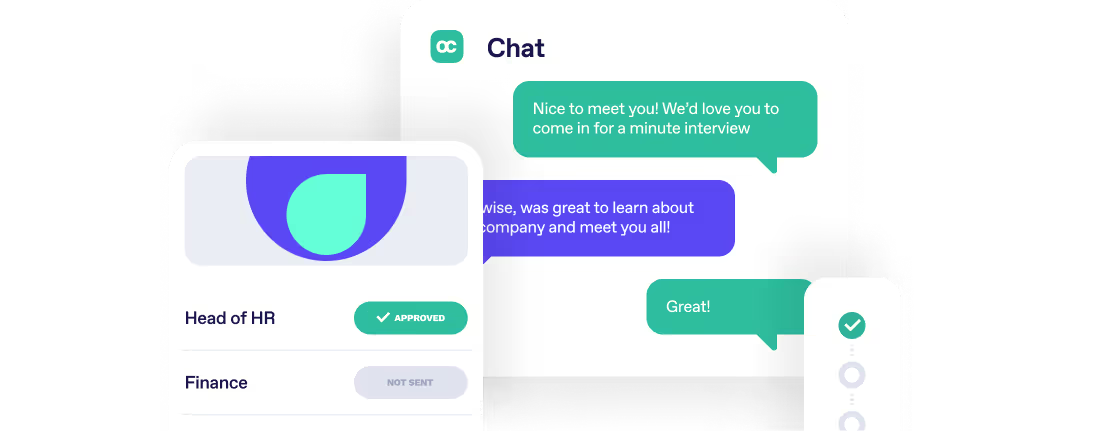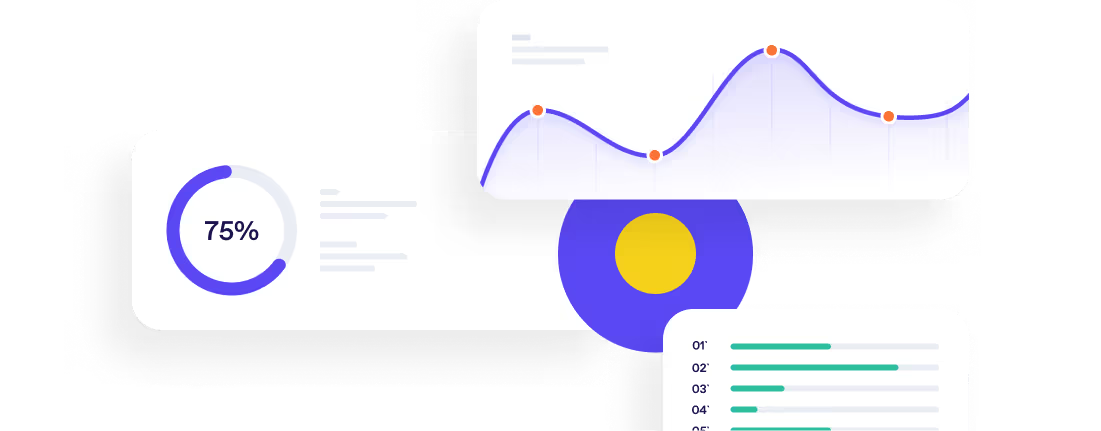How to scale your hiring during a rapid growth phase



Typical examples of this include:
- Completion of a successful round of series B funding
- Closed a major contract
- Started strategic expansion into a new territory
- Launched a new product requiring a new sales and support team
While all these growth triggers are exciting, the rapid upscaling of the business which is required to realise these ambitions creates a massive challenge for your operation. Existing hiring processes which worked well historically may show fragility in a rapid-growth, high-volume recruiting environment.
Key challenges of shift to rapid-growth and high volume hiring
The word-of-mouth talent pipeline which can help meet resourcing needs in the early days, may now struggle to produce sufficient volume, quality and diversity of skill set.
During rapid-growth periods, employers are sometimes forced to make compensation deals which exceed internal rates in order to secure the most in demand talent. This can lead to resentment in the ranks and/or unplanned for wage inflation.
Again, rapid upscaling can expose systemic weaknesses in your employer value proposition, such as a lack of flexible working options compared to your competition, meaning HR policies may have to be rapidly redefined to accommodate. This too, can create employee relation issues and lead to costly time delays at offer stage as terms are negotiated.
High-volume recruitment creates an immediate demand for written job descriptions which can take time to create, leading to advertising delays and/or job adverts which don’t accurately represent the job and challenges the candidate will face.
Rapid upscaling usually creates a need for more coordination, adding management overhead costs and introducing more hierarchy into the organization which existing employees may struggle to adapt to.

Rapid upscaling creates requires rapid optimisation of the hiring process
Rapid upscaling of a business involves high-volume recruitment which will rapidly expose any weaknesses in your hiring process. Therefore, it is vital that when going through such a process you optimize your hiring process using research proven best practices in hiring. We have described some of the most relevant ones below.
Focus on assessing emotional intelligence in hiring as well as technical skills
Research shows that 46% of new hires fail and yet contrary to accepted wisdom this is not down to technical skills, (which are usually sufficiently assessed), but poor interpersonal skills which managers admit are often overlooked in hiring. Traits such as coachability, emotional intelligence, motivation and temperament were highlighted as crucial for success, particularly so in high growth environments with rapidly evolving hierarchies.
INSERT-CTA
Introduce structured interviewing
Even though they have a low predictive validity of just 31%, unstructured interviews, (informal chats), are unfortunately relied upon by a significant proportion of firms. Structured interviews (standardised questions based on job competencies) are the vastly superior alternative as they are twice as reliable, predicting effectively how a candidate is likely to perform in a job 62% of the time.
Introduce ability tests
Research shows that the most reliable form of candidate selection is the assessment centre, (a formal set of personality, aptitude and situational assessments lasting a day or more). However, these administration heavy processes are understandably too unwieldy for rapidly upscaling businesses, who can deploy the scaled down version of ability tests and work samples. These assessments are almost twice as reliable as unstructured interviews and can be deployed quickly.
Automation of time-consuming manual hiring tasks
However, one of the most crucial improvements that should be made in a rapid growth environment is using cutting edge applicant tracking software to automate the hiring process and its many menial tasks such as:
- Posting job adverts to jobs boards
- CV and resume capture and upload to database
- Candidate pre-qualification and assessment
- Candidate long-listing and short-listing based on success profiles
- Candidate communication and follow-up
- Interview scheduling and calendar management

How Occupop helped this high growth start-up hire their first sales team, fast
This Case Study shows how Occupop’s software automated and streamlined the hiring process of Hero Media Network, (a small full-service creative agency with big hiring expectations), enabling them to upscale their business to the next level.
The Situation
The Hero Media Network were growing rapidly and the time pressurized CEO, Dean, found himself with an overwhelming need to hire a sales team and not enough time to do it. He needed a solution. More important than just saving time, he wanted a better way to manage, automate, and expand the company’s overall HR function for strategic success.
The main challenges that he was facing as the CEO of the rapid growth Hero Media Network were:
- Wasted executive time
- Lack of structure in the hiring process
- Lack of quality applicants
- Lack of automated processes
- Ineffective way to engage employees
Dean was in a race for talent and was able to hit the ground running with Occupop
Dean was particularly impressed with Occupop’s streamlined and fast onboarding process:
“It was very fast…it took a few hours of my time, and I was up and running.”
Within only a short period of time, Dean was able to begin using Occupop to advertise vacancies across multiple US locations and job boards saving time and automating otherwise-tedious HR tasks.

Occupop's AI automated shortlisting unlocked the door to hiring at scale
The use of interview scorecards and AI means that the smart technology recognises who best fits the job according to skills and experience and applies a score to the candidate profile.
This time-saving automated shortlisting tool, paired with some data points in their initial advert design, meant that Dean got really good results from their recruitment advertising campaigns.
Dean particularly valued in the SMART screening questions, which enabled him to screen unsuitable candidates who didn't have the required skills, quickly.
Results
• 90% Increase in quality of applicants
• Faster Hiring Manager review time
• Reduced Time to Hire
• Saved Executive time
• Saved Costs on recruitment
Read our entire Hero Media Network case study to learn more about how this business owner managed to automate their hiring process to enable rapid growth through volume hiring using our ATS.
Ready to invest in an ATS system but need to convince your leadership team? Download the ATS Business Case Template that will help you present a business case for an investment in an Applicant Tracking System for your organisation.
INSERT-LINE
About Us
From rapidly growing startups to scalable enterprise organisations, Occupop makes beautifully simple recruitment software to help you scale. We’re on a mission to make recruitment incredibly easy and accessible to everyone at work. If you think Occupop could be a good small to medium business recruitment software solution for you, try it out today with a free 14-day trial.
Summary Points
How to scale your hiring during a rapid growth phase
- Focus on assessing emotional intelligence in hiring as well as technical skills
- Introduce structured interviewing
- Introduce ability tests
- Automation of time-consuming manual hiring tasks
Simple. Beautiful.
Recruitment Software.
HR updates sent straight to your inbox
You might also like...


Manage your entire hiring process simply, from engagement to management, hiring and onboarding







Simple. Beautiful.
Recruitment Software.
Recruitment Software.






